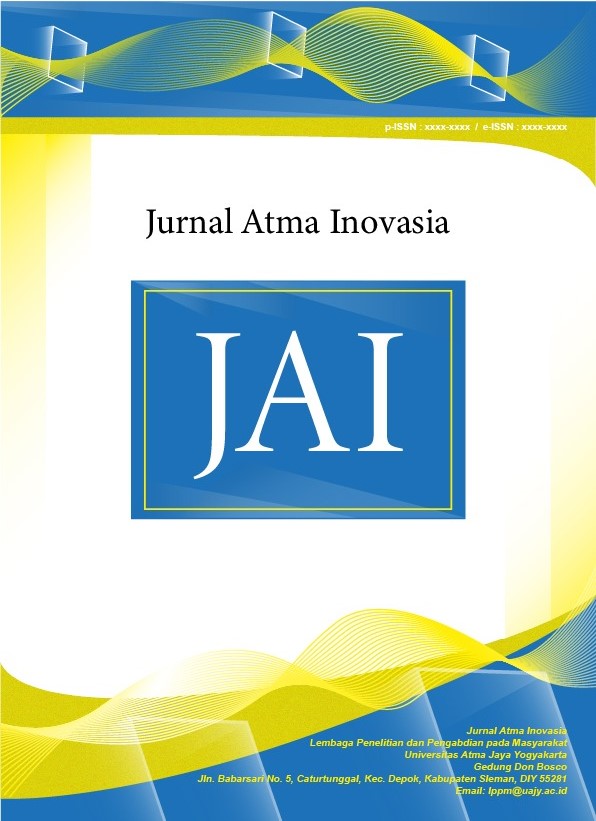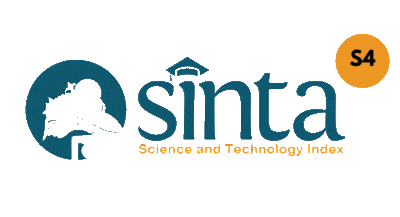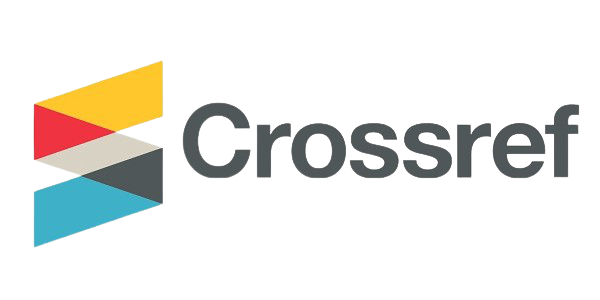Pelatihan Software Akuntansi untuk Musyawarah Guru Mata Pelajaran Ekonomi Daerah Istimewa Yogyakarta
DOI:
https://doi.org/10.24002/jai.v4i5.9565Abstract
Economic disruption and changes in corporate operations in the Fourth Industrial Revolution will necessitate the understanding and control of artificial intelligence, or robots. This is a major issue, but it is also important for economic teachers to introduce companies that are already successful and sophisticated. Accounting software may help make bookkeeping, analyzing, reporting, and investigating easier and more precise; this concludes an opportunity in this era. Therefore, educational institutions must develop graduates who are adaptable and have soft skills. The Accounting Program and Financial Accounting Pillar team respond to economic teachers at MGMP in the Special Region of Yogyakarta by organizing a discussion forum and simulation to provide them with knowledge and best practices for using accounting software to manage business activities and achieve effective and efficient business outcomes. These exercises involve a class lecture using an andragogic approach. The discussion results suggest that economic teachers have best practices to offer accounting software to their pupils. On the other hand, it can increase teaching motivation for improving both financial and technology for themselves and the topic itself.
References
[1] N. Febriany, “Penggunaan Teknologi Informasi Terhadap Kinerja Guru Akuntansi,” J. Inf. Akunt., no. 8.5.2017, pp. 2003–2005, 2022, [Online]. Available: www.aging-us.com.
[2] Helaluddin, “Peningkatan Kemampuan Literasi Teknologi dalam Upaya Mengembangkan Inovasi Pendidikan di Perguruan Tinggi,” Jurnla Pedais , vol. 1, no. 1, pp. 44–55, 2019.
[3] E. Linggasari and E. Rochaendi, “Indonesian Language Learning in Elementary Schools Through Life Skills Education Model,” LITERASI (Jurnal Ilmu Pendidikan), vol. 13, no. 1, p. 40, 2022, doi: 10.21927/literasi.2022.13(1).40-62.
[4] Hariyanto, P. A. Susanti, M. Hadjaat, M. Wasil, and A. D. Susilawati, “Meningkatkan Literasi Teknologi di Masyarakat Pedesaan Melalui Pelatihan Digital,” J. Abdimas Perad., vol. 4, no. 2, pp. 12–21, 2023, doi: 10.54783/ap.v4i2.24.
[5] M. Minarni, E. Epinur, F. Fuldiaratman, Y. Yusnidar, and R. Wardiah, “Pelatihan Pembuatan Animasi Pada Media Pembelajaran Berbasis Blended Learning Untuk Meningkatkan Kompetensi Guru di SMAN 11 Kota Jambi,” Darmabakti J. Pengabdi. dan Pemberdaya. Masy., vol. 3, no. 2, pp. 072–078, 2022, doi: 10.31102/darmabakti.2022.3.2.072-078.
[6] S. P. Utami and S. I. Akutansi, “Pemanfaatan It Akuntansi Di Dunia Kerja,” Ilmudata.org, vol. 3, no. 2, p. 1, 2023.
[7] M. Zulham, “Kesenjangan Digital di Kalangan Guru SMP (Studi Deskriptif mengenai Kesenjangan Aksesibilitas dan Kapabilitas Teknologi Informasi di kalangan Guru SMP Kecamatan Krian),” Univ. Airlangga J., vol. 3, no. 3, pp. 626–637, 2014.
[8] P. D. Wahyuni, M. Chairunisa, and F. P. Yudha, “Meningkatkan Pembelajaran Dan Kompetensi Siswa SMK Bina Insan Mandiri Melalui Pelatihan Software Akuntansi Myob Di Wilayah Srengseng Jakarta Barat,” Abditeknika J. Pengabdi. Masy., vol. 1, no. 2, pp. 134–141, 2021, doi: 10.31294/abditeknika.v1i2.551.
[9] S. Arifah, “Strategi Pembelajaran Andragogi (Kajian Pada Mata Kuliah Pembelajaran Bahasa Indonesia),” AL-IMAN J. Keislam. dan Kemasyarakatan, vol. 6, no. 2, pp. 160–182, 2022, [Online]. Available: http://ejournal.kopertais4.or.id/madura/index.php/aliman/article/view/4441.
[10] P. Y. A. Dewi and K. H. Primayana, “Penggunaan Pendekatan Andragogi Dalam Proses Pembelajaran Nonformal,” Maha Widya Bhuwana J. Pendidikan, Agama dan Budaya, vol. 4, no. 2, pp. 94–100, 2021.
Downloads
Published
Issue
Section
License
Copyright (c) 2024 Anggreni Dian Kurniawati, Ignatia Ryana Widyatini, Wimpie Yustino Setiawan, Yohanes Mario Pratama, Tabita Indah Iswari, Pratiwi Budiharta, Totok Budisantoso, Anna Purwaningsih

This work is licensed under a Creative Commons Attribution-ShareAlike 4.0 International License.










